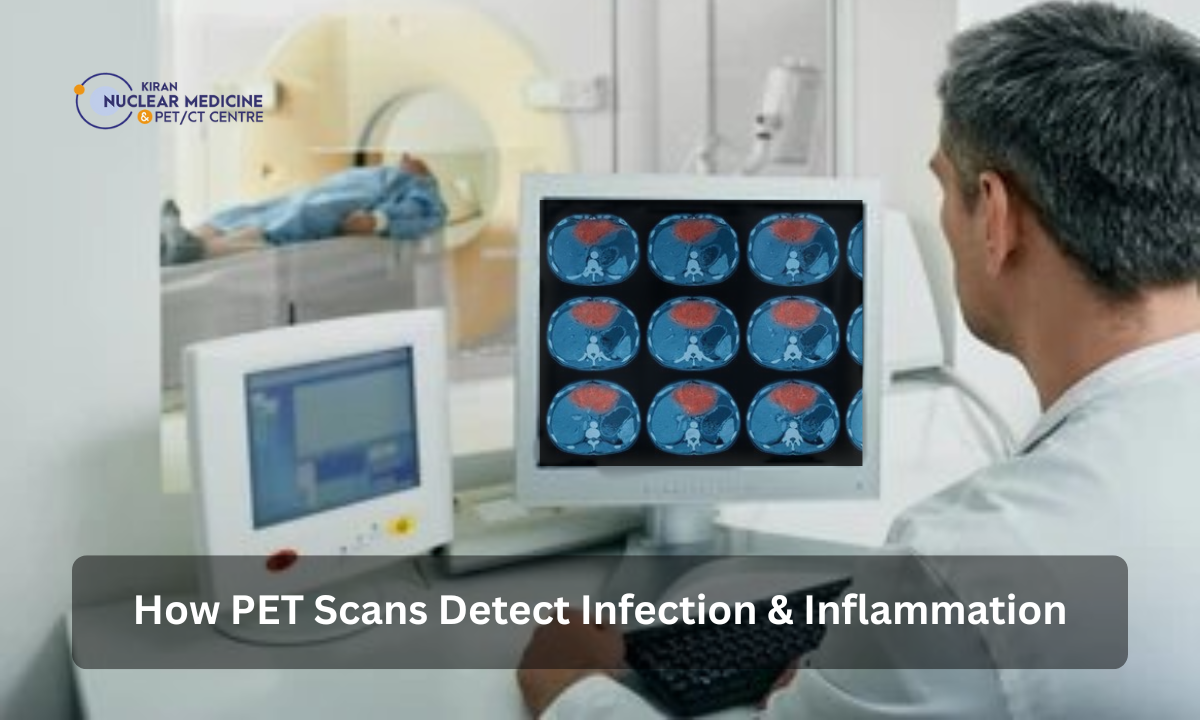When we talk about metastasis in breast cancer, we often fear the silent spread of malignant cells beyond the breast to organs like the lungs, liver or brain. Here at Kiranpet, we encounter many patients who feel fine one day and wake up to a surprise diagnosis the next.
Using advanced imaging like a PET scan for cancer, we can uncover hidden metastases and shape treatment earlier. Let me walk you through how this works, what symptoms to watch for, and why precise imaging matters.
Understanding Metastasis in Breast Cancer
Metastasis in breast cancer happens when cancer cells break away from the primary tumor in the breast and travel via blood or lymph to other parts of the body. Once they take root in sites like the lung, liver, brain or bones, the disease is known as metastatic breast cancer (MBC).
Detecting these hidden sites early is crucial because the presence of metastasis changes the treatment plan and prognosis.
Can a PET Scan Detect Metastatic Breast Cancer?
Yes, but with caveats. A PET scan uses a radioactive tracer (commonly FDG) to highlight metabolically active cells, such as cancer. These cells uptake more of the tracer and light up on imaging.
Studies have shown that PET/CT can detect metastases that conventional imaging misses. For example, one study found that PET/CT uncovered previously unseen distant metastases in 14% of breast cancer patients.
However, PET is not perfect for small tumors or early-stage spread, so it may not always detect very tiny metastases. So if the question “Can a PET scan detect cancer spread?” comes up, the answer is: yes, in many cases—but it depends on the size, location and biology of the metastases.
How Do Doctors Know if Breast Cancer Has Metastasized?
When we suspect metastasis, doctors use a combination of:
- Patient history and symptoms: new bone pain, persistent cough, headaches, etc.
- Physical examination: e.g., enlarged liver, pleural effusion, neurologic signs.
- Blood tests: liver function, calcium, tumor markers sometimes.
- Imaging: CT, MRI, bone scan, and increasingly PET/CT. The PET scan for cancer helps detect functional changes even before structural changes appear.
- Biopsy of suspected metastases, when feasible.
In our Kiranpet setting, we often review imaging findings alongside the oncologist’s evaluation to decide the next steps.
Metastatic Breast Cancer Symptoms
The signs of metastasis vary depending on where the cancer has spread:
- Metastasis of breast cancer to the lung may cause shortness of breath, persistent cough, chest pain or pleural fluid.
- Metastasis of breast cancer to the liver can lead to fatigue, nausea, abdominal swelling, yellowing of skin (jaundice), and poor appetite.
- Metastasis breast cancer to the brain may present with worsening headaches, dizziness, seizures, vision changes, and memory problems.
- General warning indicators: unexplained weight loss, persistent pain, new neurological symptoms, or any change outside the original breast region.
In other words, there may be no symptoms at all—or subtle ones. As a patient or caregiver, we must stay alert for changes.
Role of PET Scan for Cancer in Detecting Metastasis
Here’s how the PET scan works for metastatic breast cancer in my practice at Kiran PET CT:
- Preparation: The patient fasts for several hours, and we control blood glucose if needed (as high sugar levels affect tracer uptake).
- Tracer injection: Usually, FDG is given; cancer cells pick up more FDG because of higher metabolic activity.
- Scanning: The PET device records images; often, we combine it with CT (PET/CT) for accurate localization.
- Interpretation: Radiologists compare tracer uptake with CT anatomy and identify “hot spots” that may indicate metastases.
- Treatment planning: If metastasis is confirmed or suspected, treatment changes—often systemic therapy rather than surgery alone.
At Kiranpet, we offer the best PET scan in Bangalore calibre equipment and expertise. We guide patients through the scan, explain results in plain language, and coordinate with oncologists for next steps.
Common Pathways of Metastasis
Breast cancer tends to spread to certain organs more frequently: bones, lungs, liver and brain.
- Spread to bones is most common and may show as bone pain, fractures or elevated calcium.
- Spread to the lungs may be asymptomatic initially, hence the importance of imaging.
- Spread to the liver often remains silent until advanced, but imaging like PET helps pick it up earlier.
- Spread to the brain is less common but serious, and PET/CT or MRI are used.
Because these are often “silent” or non-specific, a PET scan for cancer can reveal hidden metastases that change management.
Is There a Cure for Metastatic Breast Cancer?
The phrase “metastatic breast cancer cure” should be approached with caution. At this stage, the disease is generally considered incurable in most cases. However, many patients live for years with metastatic breast cancer, managing it as a chronic condition, thanks to early detection, targeted therapies, and monitoring with imaging such as PET/CT. What we aim for at Kiranpet is control, quality of life, and prolonged survival. Detecting metastasis early through PET may allow for more effective treatments.
Why Choose a Centre like Ours in Bangalore for a PET Scan?
In Bangalore’s crowded healthcare environment, choosing the best centre matters:
- We provide advanced PET/CT imaging with full body coverage.
- Our technologists are trained and certified; radiologists are experienced in oncologic PET interpretation.
- We coordinate with oncologists and breast cancer specialists for integrated care.
- We respect the anxiety patients feel, so we explain the procedure step-by-step and deliver results promptly.
Given the high stakes with metastasis in breast cancer, you want precision, clarity and a team that cares.
Final Thoughts
At Kiran PET CT & Nuclear Medicine, when we spot a scan showing unexpected tracer uptake, we don’t panic; we act. Because metastasis in breast cancer doesn’t always announce itself. A cough becomes more than just seasonal; an ache becomes more than muscle strain. A PET scan for cancer shows us what the eye cannot see, and that early insight makes all the difference.
If you or someone you love is facing a breast cancer diagnosis, or if treatment is completed and there’s a worry about recurrence or spread, we urge you: let’s use the best imaging tools, and do it early. Whether we are investigating metastasis of breast cancer to the lung, liver, or the brain, catching it sooner opens doors to better outcomes.
While a definitive cure remains out of reach for many with MBC, early detection of metastases through PET undoubtedly improves chances of controlling the disease and preserving quality.
Frequently Asked Questions (FAQs)
Q 1: Can a PET scan detect metastatic breast cancer?
Yes. PET/CT is very effective at detecting distant spread in breast cancer, especially when conventional imaging is inconclusive.
Q 2: Can a PET scan detect cancer spread?
Yes, it detects functional changes (high tracer uptake), indicating potential spread to organs like lungs, liver, bones or brain.
Q 3: What is the first hint of metastatic breast cancer?
There’s no single first hint; common early signs include unexplained bone pain, persistent cough, shortness of breath, or neurological symptoms, depending on where the cancer has spread.
Q 4: What is a warning indicator of metastatic breast cancer?
Any new symptom beyond the breast area—especially persistent or unexplained pain, swelling, cough, neurological changes- should prompt evaluation.
Q 5: How do doctors know if breast cancer has metastasized?
Doctors combine patient history, physical exam, blood tests, imaging (including PET/CT) and sometimes biopsy of the suspected metastatic site to confirm spread.







